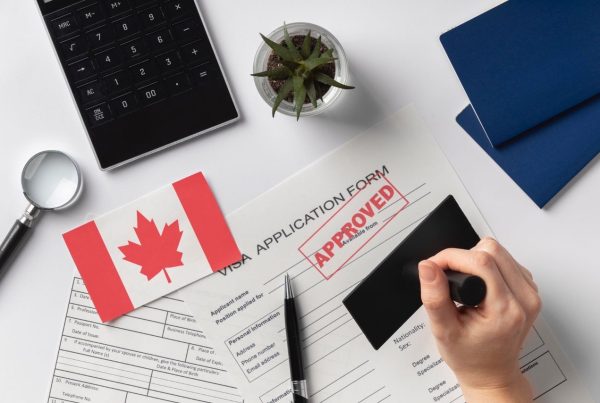Studying in another country is a big step for many people as it requires lot of efforts. But between deciding to go and being there, there are a few things you need to take care of. Think of it like a journey with different stops.
One important step is getting a student visa. This special document is like your ticket to enter the country for your studies – it lets the officials know you’re there to learn, not just visit. Even though getting accepted into a university is super important, this visa is what will let you travel there and start your studies. Below is everything you need to know about student visas as an international student.
What is a Student Visa?
A student visa is a permit that allows you, an international student, to stay in a foreign country specifically for pursuing higher education. It’s a non-immigrant visa, meaning it doesn’t grant citizenship. The visa allows you to stay for the duration of your studies, and depending on the country, might even permit you to stay for a while after graduation. Each country has its visa regulations, so it’s crucial to research specific requirements for your destination.
Common Types of Student Visas
F-1 Visa (USA): For academic studies at an accredited US university or college.
Tier 4 Visa (UK): This is the most common student visa for international students in the United Kingdom. It is issued to students enrolled in a full-time degree program at a registered UK institution.
J-1 Visa: This visa is for exchange visitors who come to the United States. It includes students participating in government-sponsored exchange programs or internship programs.
M-1 Visa: This is for students enrolled in non-academic or vocational programs in the United States.
Requirements For a Student Visa
While the exact requirements can differ depending on the country you’re going to, there are some common things most countries ask for:
- Valid Passport: This is your official travel document, so make sure it’s up-to-date and won’t expire during your studies.
- School Acceptance Letter: This proves that you’ve been accepted into a program at a recognized school in that country.
- Financial Proof: You’ll need to show you have enough money to cover your tuition and living expenses while you study. Bank statements or scholarship documents are common ways to do this.
- Health Insurance: Most countries require you to have health insurance to cover any medical needs you might have during your stay.
Conclusion
Obtaining a student visa is an important step toward fulfilling your academic journey abroad. By understanding the requirements, preparing thoroughly, and seeking guidance when needed, you can navigate the process successfully and embark on an enriching educational journey. To get started on how to obtain a student visa, contact Purplebook today so we can guide you.
Contact Purplebook.ng today to assist you in your study abroad journey. Don’t forget to subscribe to our newsletter to gain access to scholarship opportunities and available programs.
Stay up to date by following us on Instagram, Facebook, LinkedIn and Twitter.




